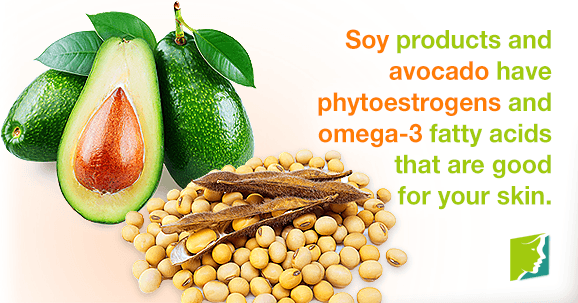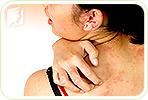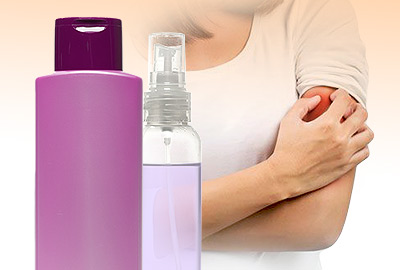Itchy skin during menopause can be experienced as an intense and highly-disruptive condition. Luckily however, there are simple daily actions you can take that will help eliminate the problem and prevent the necessity of taking more drastic actions. Read on for a step-by-step guide that will keep scratching to a minimum.
Beat the Heat
Weather and everyday living environments can make a big difference when dealing with itchy skin during menopause, or indeed during any time of life. Uncomfortable temperatures are known to trigger hot flashes and night sweats in women going through this stage, which can cause excess sweating and thus irritate the skin. Too much humidity can also have a negative effect, sometimes resulting in “prickly heat,” a rash-like condition. Staying as cool as possible is the most fundamental step toward finding relief.
Pay Attention To Material
Women who are having problems with itchy skin during menopause should be particularly mindful of the effect that close contact clothing can have on their skin. Hormonal fluctuations may change allergic reactions to many types of wool and fabrics with a tight weave may cause overheating and precipitate other symptoms. Smooth, cotton fabric is best bet for avoiding these problems.
Eat More Estrogen
The most common underlying cause of itchy skin during menopause is hormonal imbalance. Therefore, internal dietary changes can greatly help prevent this symptom. There are many foods available that contain phytoestrogens - plant-based nutrients that can substitute estrogen and raise its dipping levels in the body -thus alleviating many menopause symptoms.Many of these phytoestrogenic options also contain high concentrations of omega-3 fatty acids, which are essential to forming a healthy oil barrier on the skin that protects against dryness. Try soy products and avocado to reap all these benefits at the same time.
Utilize Herbs
Whether ingested or applied directly, herbs can have a huge impact on dermal conditions. Itchy skin during menopause can also be a stress-related reaction, so aromatherapy with scents that soothe can work to relax away the irritation. Additionally, topical treatments like tea rinses can offer immediate relief: basil acts as an anesthetic, while mint is a traditional Chinese remedy for hives, and thyme has anti-inflammatory properties.
When lifestyle changes are not enough to cure itchy menopausal skin, several natural herbal supplements can also treat the problem. These supplements can address hormonal imbalance at the source, supporting the endocrine system and boosting normal estrogen production.To ensure proper treatment for itchy skin, talk to your doctor about the reasons behind this condition during menopause.
Sources
- Dreher, M.L. & Davenport, A.J. (2013). Hass Avocado Composition and Potential Health Effects. Critical Reviews in Food Science and Nutrition, 53(7), 738-750. doi: 10.1080/10408398.2011.556759
- McCusker, M.M. & Grant-Kels, J.M. (2010). Healing fats of the skin: the structural and immunologic roles of the omega-6 and omega-3 fatty acids. Clinics in dermatology, 28(4), 440-451. doi: 10.1016/j.clindermatol.2010.03.020.
- National Health Service. (2013). Prickly Heat. Retrieved August 16, 2013 from http://www.nhs.uk/conditions/Prickly-heat/Pages/Introduction.aspx
- Sunita, P & Pattanayak, S.P. (2011). Phytoestrogens in postmenopausal indications: A theoretical perspective. Pharmacognosy review, 5(9), 41-47. doi: 10.4103/0973-7847.79098
- Vorvick, L.J. (2012). Itching: MedlinePlus Medical Encyclopedia. Retrieved September 26, 2013, from http://www.nlm.nih.gov/medlineplus/ency/article/003217.htm



